Search Articles
Search results
Displaying 1901 - 1920 of 1962
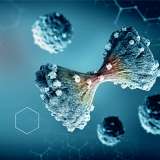
Cancer,
Science & Research
Researchers Find Biomarkers in Saliva for Early Detection of Pancreatic Cancer
Physicians and scientists agree: If we cannot prevent cancer, the next best thing is to find it earlier to maximize the chances of a successful fight.
February 24, 2010
|
3 min read

Cancer,
Science & Research
UCLA Researchers Perform Complete Genomic Sequencing of Brain Cancer Cell Line
UCLA researchers have performed the first complete genomic sequencing of a brain cancer cell line, a discovery that could facilitate personalized treatments based on the unique biological signature of an individual’s cancer.
January 29, 2010
|
5 min read
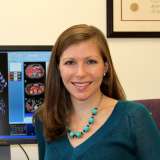
Cancer,
Science & Research
Cancer Researcher Wins Prestigious Grant to Study Cancer Metabolism
Heather Christofk, a researcher with the UCLA Jonsson Comprehensive Cancer Center and the Institute for Molecular Medicine at UCLA, has received a prestigious grant to study how glucose metabolism is altered in cancer, a condition which leads to tumor growth.
January 20, 2010
|
2 min read
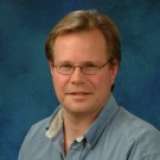
Cancer,
Science & Research
Natural Compound Blocks Hepatitis C Infection
Researchers have identified two cellular proteins that are important factors in hepatitis C virus infection, a finding that may result in the approval of new and less toxic treatments for the disease, which can lead to liver cancer and cirrhosis.
January 6, 2010
|
3 min read

Cancer,
Science & Research
Reactive Oxygen Levels in Fruit Flies Act as Cell Signaling Mechanism
For years, health conscious people have been taking antioxidants to reduce the levels of reactive oxygen in their blood and prevent the DNA damage done by free radicals, which are the result of oxidative stress. But could excessive use of antioxidants deplete our immune systems? Research at UCLA’s Jonsson Comprehensive Cancer Center has raised that question.
December 24, 2009
|
4 min read

Cancer,
Science & Research
Enzyme Necessary for Healthy Immune System, Study Finds
Mice without the deoxycytidine kinase (dCK) enzyme have defects in their adaptive immune system, producing very low levels of both T and B lymphocytes, the major players involved in immune response.
December 22, 2009
|
4 min read
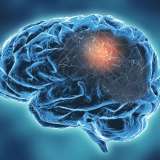
Cancer,
Science & Research
Treating Deadly Brain Cancers by Targeting Their Metabolic Activity may Provide New Therapeutic Option
Inhibiting fatty acid synthesis in brain cancer cells may offer a new option to treat about 50 percent of deadly glioblastomas that are driven by amplified signaling of the epidermal growth factor receptor (EGFR), according to a first-of-its-kind study by researchers at UCLA’s Jonsson Comprehensive Cancer Center.
December 14, 2009
|
4 min read
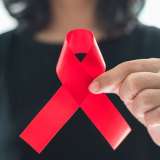
Science & Research
UCLA researchers demonstrate that stem cells can be engineered to kill HIV
Researchers from the UCLA AIDS Institute and colleagues have for the first time demonstrated that human blood stem cells can be engineered into cells that can target and kill HIV-infected cells — a process that potentially could be used against a range of chronic viral diseases.
December 7, 2009
|
3 min read
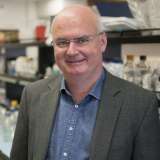
Cancer,
Science & Research
Nanoparticles Found in Common Household Items Caused Genetic Damage in Mice
Titanium dioxide (TiO2) nanoparticles, found in everything from cosmetics to sunscreen to paint to vitamins, caused systemic genetic damage in mice, according to a comprehensive study conducted by researchers at UCLA’s Jonsson Comprehensive Cancer Center.
November 19, 2009
|
3 min read

Cancer,
Science & Research
FDA Approved Leukemia Drug Shows Promising Activity in Ovarian Cancer Cell Lines
The drug Sprycel, approved for use by the U.S. Food and Drug Administration in patients with chronic myeloid leukemia, significantly inhibited the growth and invasiveness of ovarian cancer cells and also promoted their death, a study by researchers with UCLA’s Jonsson Comprehensive Cancer Center found.
November 10, 2009
|
3 min read

Cancer,
Science & Research
UCLA Researchers Receive $49.2 Million in Grants to Fund Research
Three UCLA scientists have been awarded grants totaling $49.2 million to take leading-edge stem cell science from the laboratory and translate it into new therapies for such devastating diseases as brain, ovarian and colorectal cancers, sickle cell and HIV/AIDS.
November 5, 2009
|
10 min read
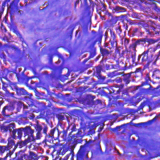
Cancer,
Science & Research
New hydrogels show promise in treating bone defects
Bioengineers and dentists from the UCLA School of Dentistry have developed a new hydrogel that is more porous and effective in promoting tissue repair and regeneration compared to hydrogels that are currently available.
October 1, 2009
|
3 min read

Cancer,
News about UCLA Health,
Science & Research
Innovative University of California Collaboration Targets Breast Cancer
UCLA is taking part in an unprecedented statewide University of California collaboration to revolutionize care for breast cancer patients by designing and testing, system-wide, new approaches to research, technology and health care delivery.
September 29, 2009
|
7 min read
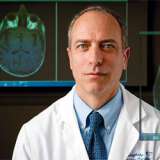
Cancer,
Science & Research
Avastin Dramatically Increases Response, Survival in Recurrent Brain Cancers
The targeted therapy Avastin, alone and in combination with the chemotherapy drug CPT-11, significantly increased response rates, progression-free survival times and survival rates in patients with a deadly form of brain cancer that had recurred.
September 3, 2009
|
4 min read

Cancer,
Science & Research
Crystal ball for brain cancer?
UCLA scientists have devised a new way to image brain tumors and predict which ones are most likely to benefit from the drug Avastin — before the patient ever takes a single dose.
August 3, 2009
|
4 min read
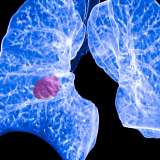
Cancer,
Science & Research
Researchers Develop Model that May Help Identify Lung Cancer Stem Cells
Researchers at UCLA’s Jonsson Comprehensive Cancer Center, on a quest to find lung cancer stem cells, have developed a unique model to allow further investigation into the cells that many believe may be at the root of all lung cancers.
June 16, 2009
|
5 min read

Cancer,
Science & Research
Study Details Quality of Life for Prostate Cancer Patients Four Years Out From Treatment
A long-term study by researchers at UCLA’s Jonsson Comprehensive Cancer Center found that the three most common treatments for localized prostate cancer had significant impacts on patients’ quality of life, a finding that could help guide doctors and patients in making treatment decisions.
June 9, 2009
|
4 min read

Cancer,
Science & Research
Researchers for the First Time Link Intestinal Inflammation to Systemic Chromosome Damage
UCLA scientists have linked for the first time intestinal inflammation with systemic chromosome damage in mice, a finding that may lead to the early identification and treatment of human inflammatory disorders, some of which increase risk for several types of cancer.
June 2, 2009
|
4 min read

Cancer,
News about UCLA Health,
Science & Research
Leading-Edge Research Management System Launched
In an effort to improve and streamline management of clinical trials, UCLA’s Jonsson Comprehensive Cancer Center has acquired and recently launched Velos eResearch software that allows for better use of information systems and clinical databases in medical research.
April 29, 2009
|
4 min read

Cancer,
Science & Research
Using PET/CT Imaging, Researchers Can Tell in a Single Treatment if Chemotherapy is Working
Oncologists often have to wait months before they can determine whether a treatment is working.
April 15, 2009
|
3 min read